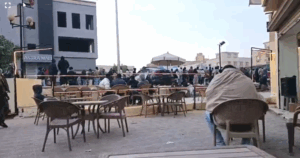AU council to take action against South Sudan warring parties
The African Union’s peace council threatens to take measures against South Sudan’s warring parties that defy peace efforts, at the summit in South Africa.
In a strongly worded statement, the Peace and Security Council of the African Union (AU PSC) threatened to take measures against South Sudan's warring parties that continue to defy all peace efforts made in an attempt to end the country's war, that ignited between government and opposition forces late 2013.
This came in a communique (find below) released on Saturday in Johannesburg, South Africa, in its 515th meeting at the level of AU’s heads of state and government, following reports presented to the council by both chairpersons of the AU’s Commission and the Intergovernmental Authority on Development (IGAD, attachment below) on the general situation in South Sudan.
Measures against individuals
The PSC “recalls its previous pronouncements on the need to take the necessary measures, in coordination with IGAD, against any party that fails to honour its commitments and continues to undermine the search for “a negotiated solution” to the conflict, in line with UN Security Council resolution 2206 (2015) of 3 March 2015”.
It calls to designate individuals and entities subject to the measures provided for therein. Earlier, the Security Council (UNSC) passed a resolution on the sanctions on South Sudan which would include travel bans and assets freeze on individuals as well as an arms embargo on the country.
The AU’s peace and security council “strongly condemns the ceasefire violations committed by the parties”, as well as “the attacks and other acts of violence and harassment targeting the humanitarian agencies and their personnel and assets”.
The PSC announced the convention of a ministerial-level meeting by mid-July to investigate human rights abuses committed during the armed conflict. No date was yet announced for the resumption of the peace talks in Addis Ababa in order to negotiate a final peace agreement.
A draft peace agreement proposal by IGAD to end the war was rejected by the two warring parties led by President Salva Kiir and armed opposition leader, Riek Machar, due to varying observations in the power-sharing agreement.
Both president Kiir and opposition leader Machar attended the AU summit in South Africa.











 and then
and then